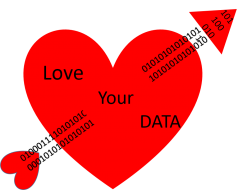Today’s LYD post is by Amy Koshoffer, Science Informationist based at the Geology Math and Physics Library with editorial support from Dr. Eric J. Tepe, Assistant Professor of Biology and Curator of the Margaret H. Fulford Herbarium.
It has been sometime since I stepped over the threshold of my old lab in the Care/Crawley Building. Many changes occurred in the interim including a move to another floor  of the building. There are times I miss the bench research and the data I created in my time as a senior research assistant. One of my favorite techniques was microscopy and particularly Electron Microscopy (EM). I remember the multitude of samples processed, the long wait for samples to be ready to image and then finally all the amazing images we captured. Processing samples for EM imagining is a long and sometimes challenging technique. The samples need to be dehydrated and then infiltrated with a resin to stabilize the structures and prevent destruction from the electron beam during viewing. You might not know if a sample has been ideally preserved until you get to the imaging lab and begin to examine the sample. But what joy when the images look amazing with crisp detail and no water holes. So much work and resources went into the sample preservation and acquiring images.
of the building. There are times I miss the bench research and the data I created in my time as a senior research assistant. One of my favorite techniques was microscopy and particularly Electron Microscopy (EM). I remember the multitude of samples processed, the long wait for samples to be ready to image and then finally all the amazing images we captured. Processing samples for EM imagining is a long and sometimes challenging technique. The samples need to be dehydrated and then infiltrated with a resin to stabilize the structures and prevent destruction from the electron beam during viewing. You might not know if a sample has been ideally preserved until you get to the imaging lab and begin to examine the sample. But what joy when the images look amazing with crisp detail and no water holes. So much work and resources went into the sample preservation and acquiring images.
I wonder what will happen to that effort in the years and decades to come. Are there others who might want to use the physical samples and digital images in their own work? Did I do what was needed to make sure that someone could reuse all the data created? Continue reading


 Drop the roses and the box of chocolate because
Drop the roses and the box of chocolate because